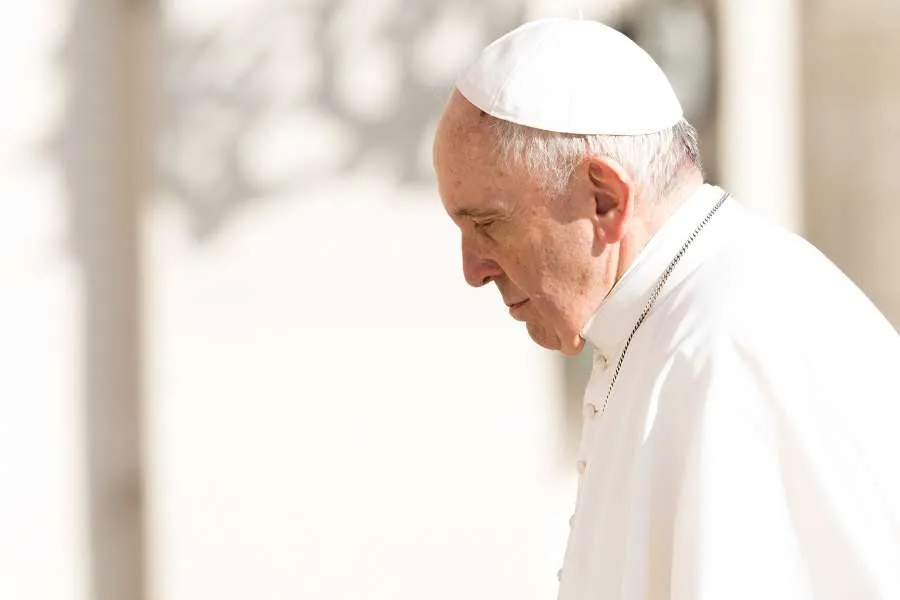Protests are largely in response to government corruption and a lack of economic growth and proper public services. Protesters are calling for reform and for the resignation of the Iraqi government.
At his audience in St. Peter’s Square Oct. 30, Pope Francis expressed his condolences for the wounded, for all those who have died and for their families, adding that he invites the Iraqi authorities “to listen to the cry of the population that asks for a dignified and peaceful life.”
“I urge all Iraqis, with the support of the international community, to pursue the path of dialogue and reconciliation and to seek the right solutions to the challenges and problems of the country,” he said.
In his message for the audience, the pope reflected on the Acts of the Apostles chapter 16, when St. Paul experiences a vision in which a Macedonian begs him to “come over to Macedonia and help us.”
“The Apostle has no hesitations, he leaves for Macedonia, sure that it is God himself who sends him,” Francis said.
He explained that in this part of the Acts of the Apostles, when St. Paul stays in Philippi, a Roman colony in Macedonia, there are three important events which take place.
The first is the evangelization and baptism of Lydia and her family, he said. The second is St. Paul’s arrest together with Silas, and the third is the conversion and baptism of their jailer and his family.
In each of these, “we see how the Holy Spirit is the protagonist of the Church’s mission: it is he who guides the path of the evangelizers showing them the way to follow,” the pope said.
After Lydia's conversion and baptism, she invites Paul and Silas into her home. With Christianity’s arrival in Europe, he said, there is “the beginning of a process of inculturation that endures even today.”
Pope Francis explained these episodes in terms of consolation and desolation. This moment with Lydia was a moment of receiving the Holy Spirit’s consolation, he said. When Paul and Silas are beaten and thrown into prison, they pass from consolation to a moment of desolation.








